I-85’s landmark piano in the sky to come down ahead of music shop’s move

Cooper Piano has relied for decades on simple directions to get customers in the door of the Brookhaven music store off I-85.
Just look for the big piano in the sky, the shop has boasted in ads. That struck a chord with many metro Atlantans, who knew instantly where to go.
Yes, that piano. The grand one jauntily perched on a pole 55 feet high, outlined in red lights, with a large black lid perennially propped open as if waiting for a giant to drop from the clouds and plunk out a tune.
But after delighting hundreds of thousands of interstate drivers daily and serving as a local landmark since its 1984 construction, this is the sign’s swan song.
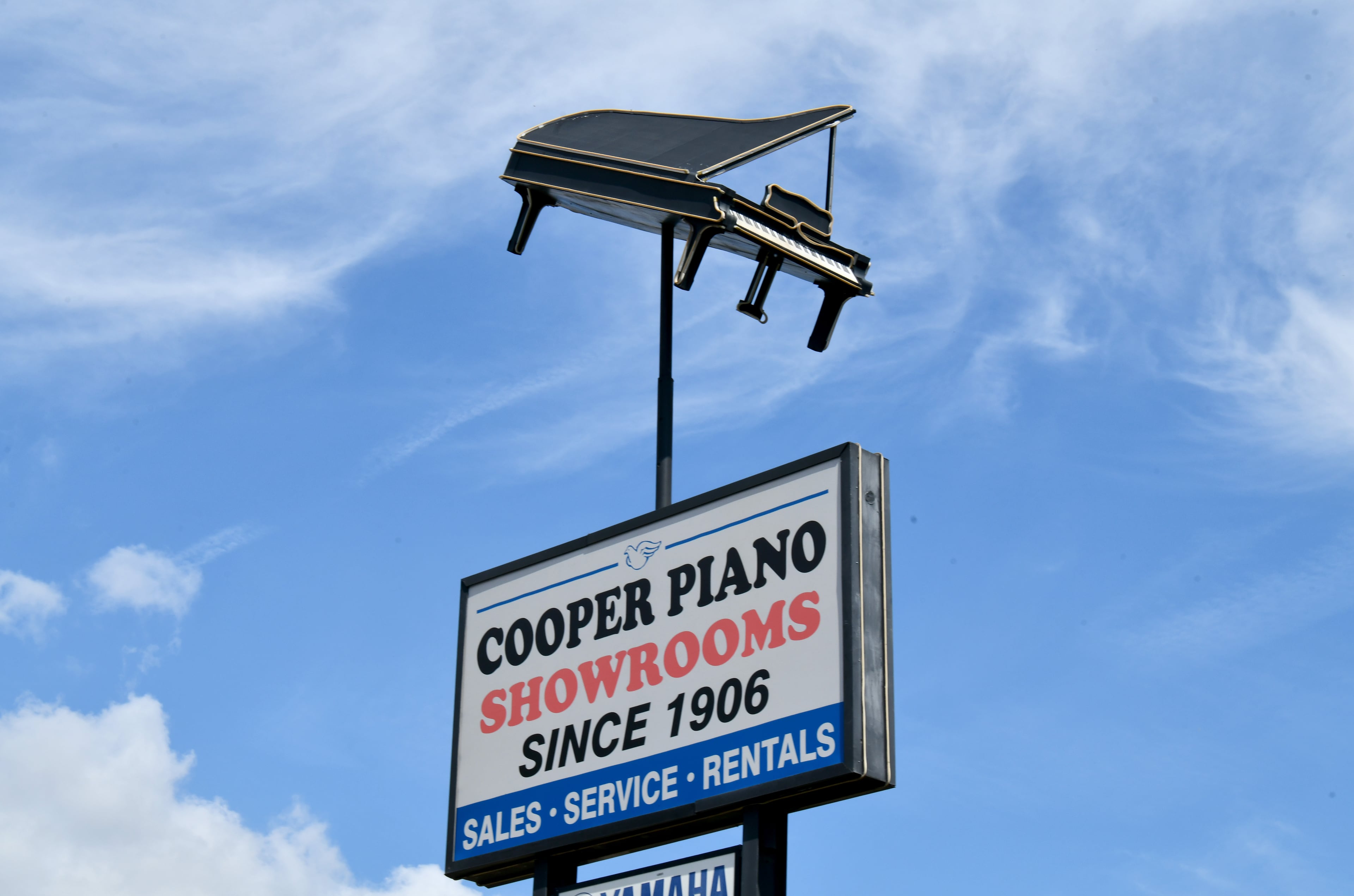
Cooper Piano has sold its building on Northeast Expressway and will move its showroom to a smaller space in Chamblee by month’s end. The behemoth, custom-built aluminum sign will be cut down Oct. 21 and go into storage with no immediate plans to resurrect it elsewhere.
“I was born in the ’90s, so it was here my whole life,” said Laura Cooper, the fifth generation to work in the family business. “It’s kind of part of Atlanta. When I was a little kid, I always thought I was a celebrity because of it. I was like, ‘That’s my family’s sign.’”
Oversize versions of instruments, doughnuts, mice and roller skates dot America’s highways and downtowns, luring customers to music stores, bakeries, pest controllers and rinks. From the 1920s, as car travel proliferated, through the booming ’50s and into the ’70s, such signs were popular ways to get people to pull over and pull out their wallets, said Debra Jane Seltzer, who has photographed the Cooper piano and Marietta’s Big Chicken for her blog and website RoadsideArchitecture.com.
In recent decades, some of these feats of whimsy and monuments to commerce have disappeared, she said, as sterile big box stores replace mom-and-pop shops or because of maintenance costs and more restrictive local sign rules.
She knows of just three other large piano signs still standing in the continental U.S., which she’s crisscrossed numerous times since 2000 for her online catalog of more than 75,000 pictures of buildings, signs and statues. Seltzer devotes weeks of vacation each year to road-tripping from her California home in her van with four rescue dogs to document roadside attractions.
“A city loses its uniqueness when it loses these special markers, these visual connectors, which connect to your brain, your emotion, your heart,” she said.
These are the spots where locals remember sharing their first kisses, the places that make a city fun: “You’re not going to do a family photo in front of Target,” she added.
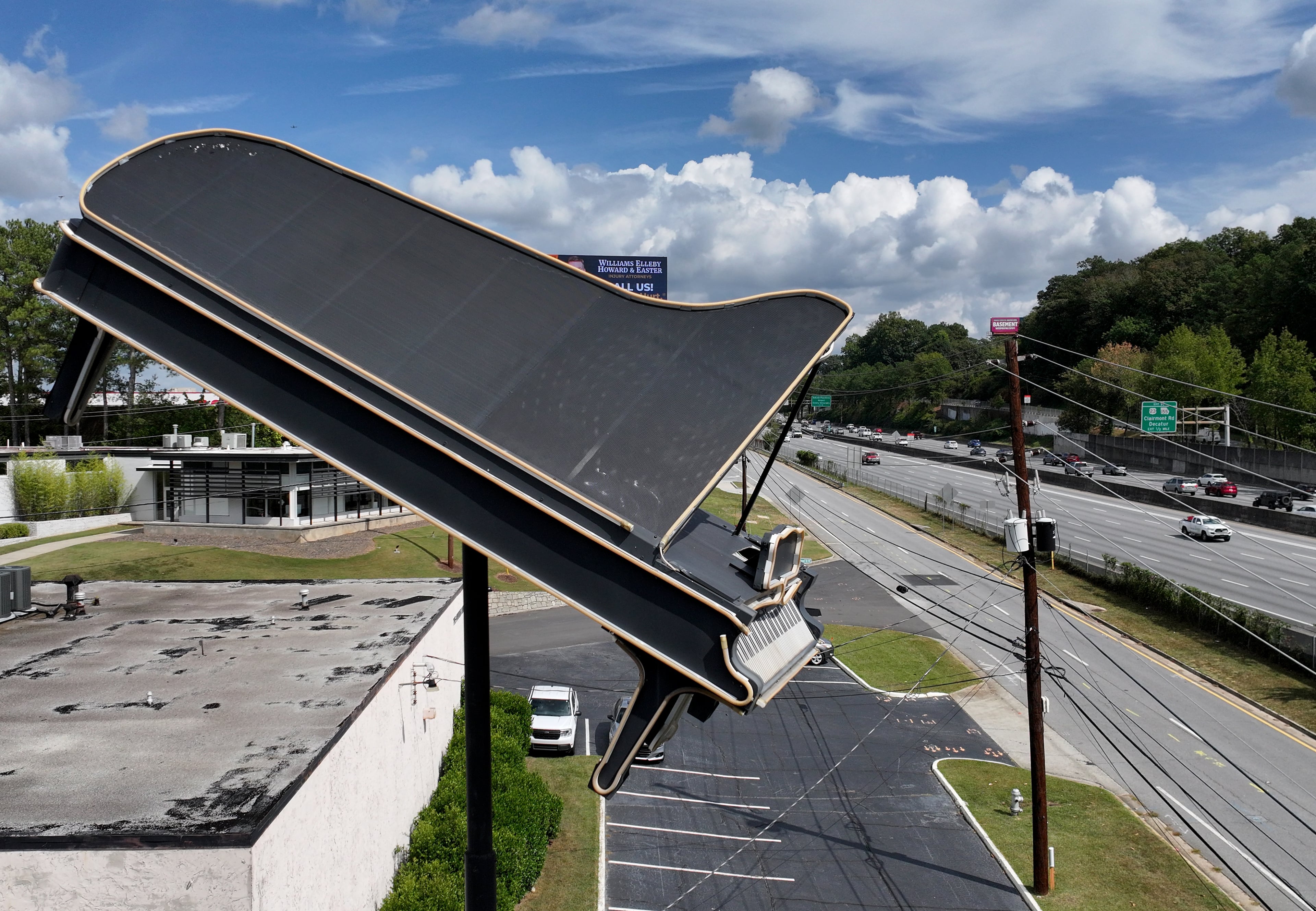
Cooper Piano president Blake Cooper likes to joke that when there’s a wreck on I-85, motorists might spend an hour in a traffic jam looking at his sign. That’s unbeatable advertising for a captive audience: The Georgia Department of Transportation estimates an average of 210,000 vehicles drive by that stretch daily.
A 12-to-15-foot, roughly 1,200-pound levitating grand piano with illuminated keys leaves quite an impression.
The sign went up the year after the business moved into the building in what was then unincorporated DeKalb County. Blake Cooper sold the space in preparation for retirement. His niece, Laura, will keep the family legacy alive in a Chamblee site on Peachtree Road, where they have had a service center and teaching rooms.
The cost to move the sign and try to remanufacture it to fit a different site is prohibitive, Laura Cooper said.
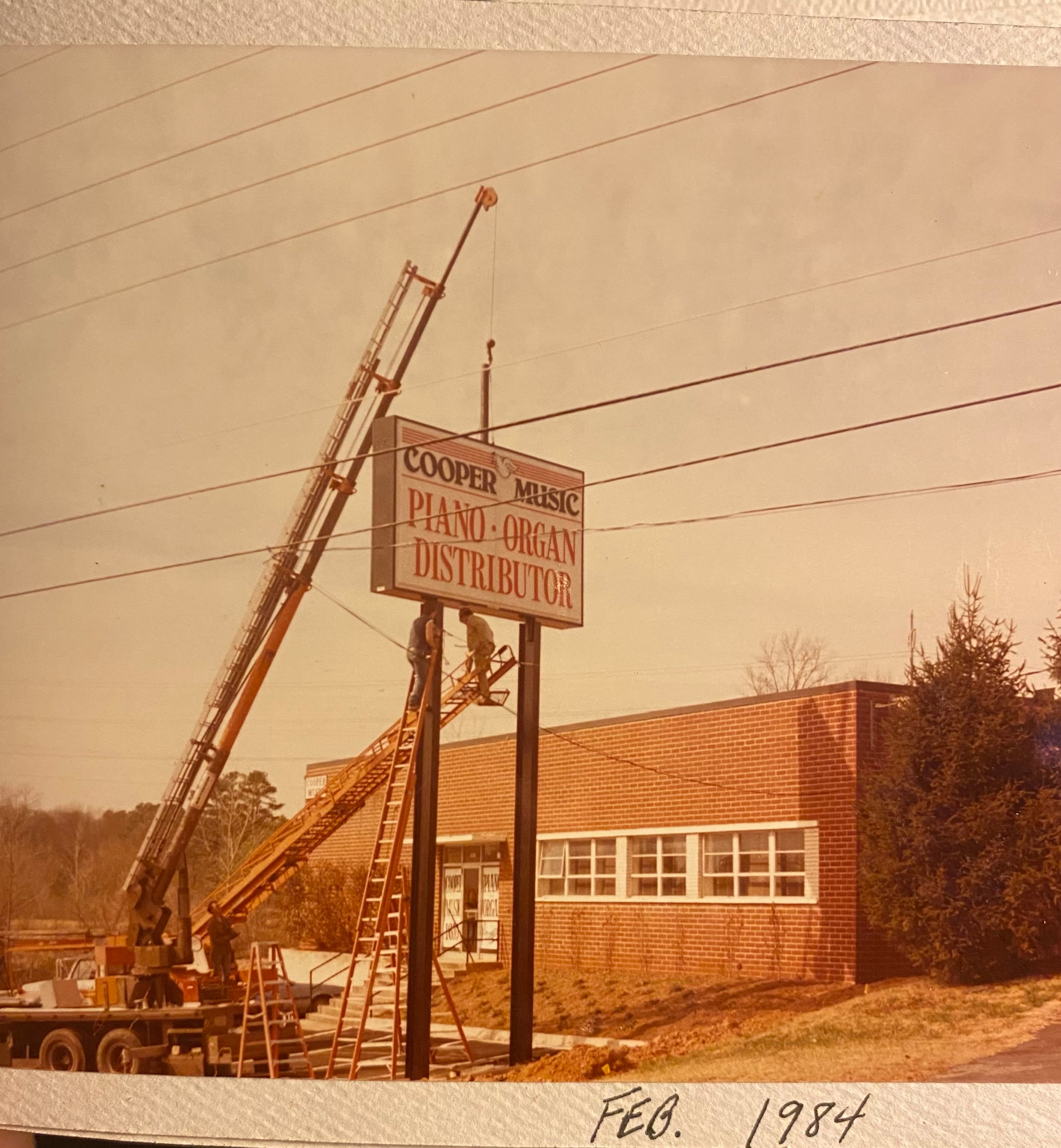
Over the past four decades, the sign has undergone a few changes. They swapped out the original neon lights for LED ones. Some years ago, devastating winds ripped the lid off the piano, and the severed chunk cut “like a can opener” through Blake Cooper’s Mercedes, parked a few spots away from the base of the sign.
“It was tragic. Especially for the car,” he said.
They refurbished the sign, replacing the piano top with a piece made of mesh so air flows more easily through it.
The towering piano-on-a-pole predates the city of Brookhaven by decades. Nowadays, the sign ordinance wouldn’t allow a similar one to be built, but the piano is grandfathered in. The rules generally limit new signs to a maximum of 10 feet, and everything has to be monument-style, meaning the sign has a base, said Linda Abaray, the city’s community development director.
That’s because officials want to keep motorists’ eyes trained on the road, not high in the sky, said Abaray, who drives by the piano “almost every morning.”
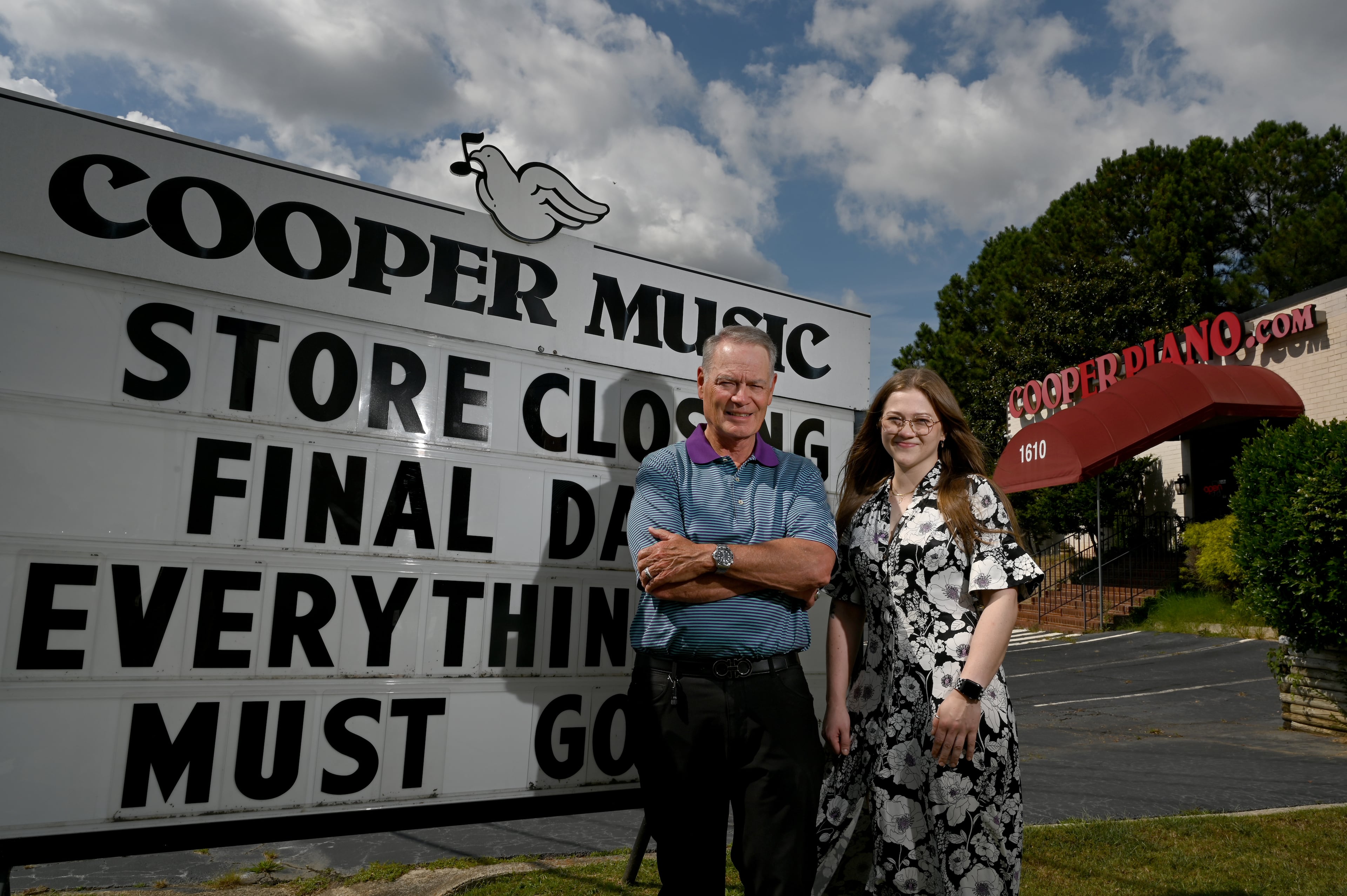
Blake Cooper expects “everybody will be sentimental” when the piano comes down. The store, which is holding a huge sale to reduce its inventory ahead of the move, is working with Georgia Certified Signs to remove it.
The Bethlehem-based company has maintained the sign for years, and its owner, Bill White, has made numerous trips to the piano’s tippy-top.
“In the 22 years that I’ve been doing this, I’ve never serviced anything even close to it. It’s definitely a relic for the Atlanta area. It’s a landmark,” he said. “It’s definitely something that once you see it, you never forget it.”
He’ll have a crew of up to five workers, plus a crane and other equipment, to remove the piano and guide it down to Earth using ropes.
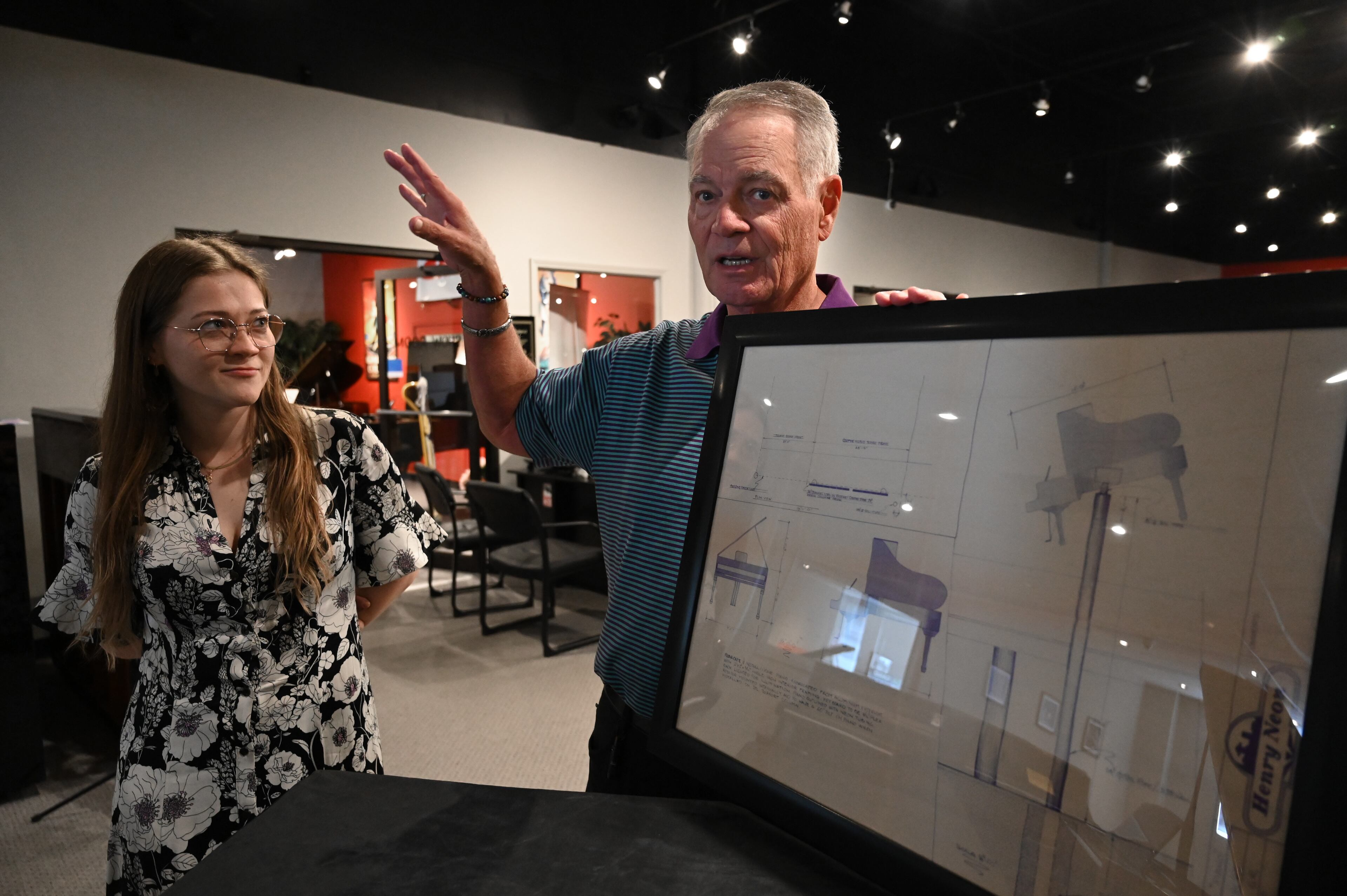
White will trailer the sign to his shop, where it will remain for a bit in case anyone comes forward with a plan to purchase or preserve it.
“We’re gonna hang on to it for like a month or so just to see if anyone gets a crazy idea of what to do with it or, you know, some fancy rich Atlanta native wants to put it in their backyard,” Laura Cooper said.
She knows many will miss it and has already heard one wistful refrain: “I knew I was almost home when I saw the sign.”



